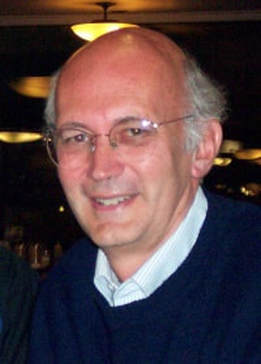Professor Charles "Chip" AquadroMy primary interests are in molecular population genetics, molecular evolution, and comparative genomics. Our current research focuses on the molecular population genetics and evolution of genes that regulate Drosophila germline stem cell (GSC) maintenance and differentiation. Our goal is to understand the types of natural selection shaping variation within and between species that is observed in GSC genes, to understand the functional consequences of this variation and diversification, and to test hypotheses as to the evolutionary forces driving the strong positive selection for protein diversification that we have observed at the key “switch” genes bag of marbles (bam) and benign gonial cell neoplasm (bgcn). Of particular interest are the roles that bacterial endosymbionts (e.g., Wolbachia) and other germline “parasites” (including transposable elements and viruses) play in driving the rapid evolution of these and other GSC genes. As part of this work, we are also continuing our computational analyses of the evolutionary rate covariation (“ERC”) statistics developed with Nathan Clark when he was a postdoc in our group (he is now on the faculty at the University of Pittsburg School of Medicine). Current work includes an extensive reanalysis of evolutionary rate correlations of all orthologous protein coding loci across 20 species of Drosophila. I also have a productive and enjoyable collaboration with my colleague Eric Alani analyzing the mutational and population genetic consequences of variants in mismatch repair genes in the yeast Saccharomyces cerevisiae.
Faculty web page: click here. |

